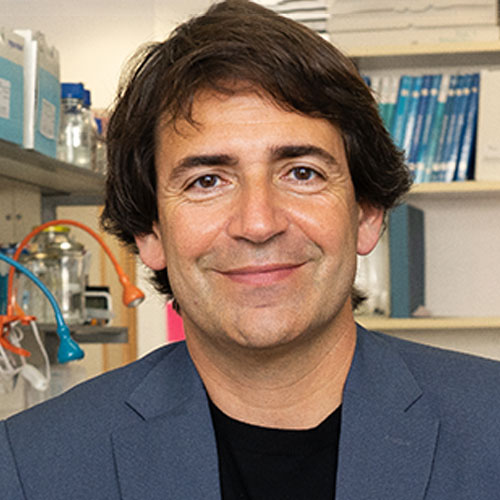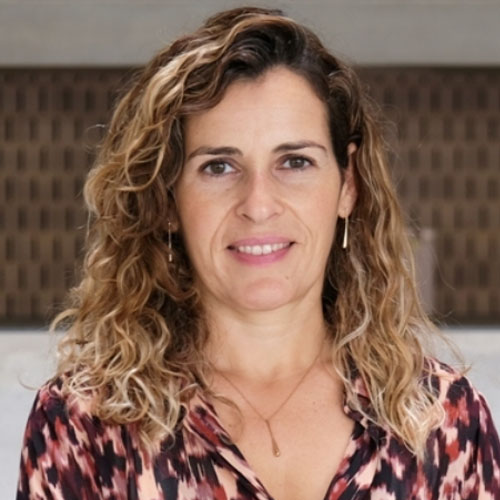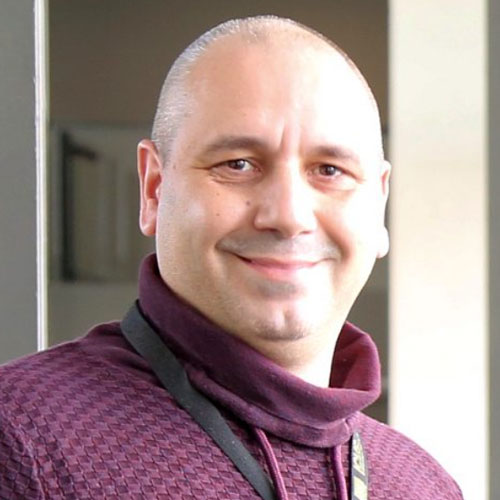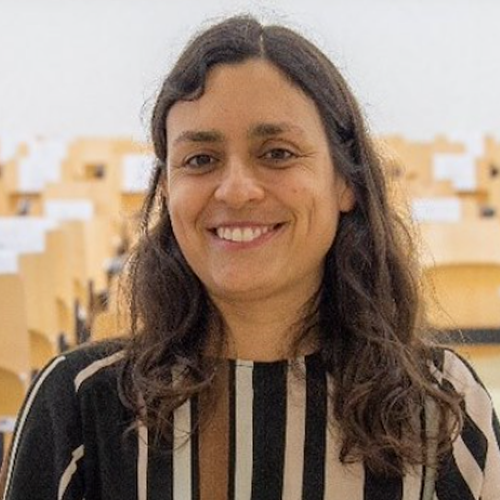The Portuguese Society for Immunology Board of Direction
The SPI board of direction have legal responsibilities and must ensure the Society is well-run, financially sound, and that it meets its objectives. As outlined in the SPI rules, each Board is elected by the membership and serves for a three-year period.
Details of the Board of Direction

Bruno Silva-Santos
President
Bruno Silva-Santos is a Full Professor and Director of Immuno-Oncology at the Faculty of Medicine of the University of Lisbon, and Group Leader and Vice-Director of the Instituto de Medicina Molecular (iMM) in Lisbon. He obtained his PhD in Immunology from University College London in 2002 for work developed with Michael Owen at Cancer Research UK (The London Research Institute), and then trained as a post-doc with Adrian Hayday at King’s College London, before establishing his own group at iMM in 2006. His research, which has been funded, among others, by the European Research Council (ERC) and the la Caixa Foundation, is mostly dedicated to gamma-delta T cells, having dissected novel molecular mechanisms of their differentiation and tumor cell recognition, published in over 100 papers in top international peer-reviewed journals. In 2019, Bruno Silva-Santos was elected Member of European Molecular Organization (EMBO) in recognition of his scientific contributions. His translational work on Immuno-Oncology was further recognized with awards from Pfizer, AstraZeneca, Janssen and Bial; and the nomination as Honorary Member of the European Academy of Tumor Immunology. His patented work on “Delta One T (DOT) cells” also constituted the basis for a start-up company focused on cancer immunotherapy, Lymphact, whose proprietary technology has been acquired by Takeda Pharmaceutical and is currently under clinical testing in the USA.

Salomé Pinho
Vice - President
Salomé Pinho is a Group Leader at the Institute for Research and Innovation in Health (i3S) at University of Porto and Affiliated Professor at Faculty of Medicine and School of Medicine and Biomedical Sciences (ICBAS) of University of Porto. She has a DVM degree (University of Porto) and developed her PhD research on cancer glycobiology at the Institute of Molecular Pathology and Immunology of University of Porto (IPATIMUP) and at Boston Medical School, MA, USA from 2006 to 2009. She performed her postdoctoral work at IPATIMUP-University of Porto with a research focus on glyco-immunology, exploring the fundamental role of glycans in chronic inflammation and cancer. At present, Salomé Pinho coordinates the research group “Immunology, Cancer & GlycoMedicine” at i3S which works at the interface of immunology, cancer and glycobiology. Pinho´s lab aims to understand how glycans regulate fundamental cellular and molecular processes relevant to immune tolerance, inflammation and cancer. The group has a multidisciplinary approach involving biochemists, biologists, and clinical investigators that in straight collaboration with national and international hospitals share the long-term goal of performing translational research as well as preclinical and clinical validation of rational biomarkers and therapeutic strategies in inflammation, autoimmunity and cancer.

Afonso Almeida
Treasurer
Afonso Almeida is Assistant Professor at the Faculty of Medicine of the University of Lisbon. He graduated in Biology (University of Porto) and obtained his PhD in Immunology at I.C.B.A.S (University of Porto) for his work on CD4+ Regulatory T cells and T cell homeostasis under the supervision of António Freitas at the Pasteur Institute (Paris, France). He continued to work on T cell homeostasis during post-doctoral studies with Antonio Lanzavecchia at the Institute for Research in Biomedicine in Bellinzona (Switzerland), before joining the Instituto de Medicina Molecular (iMM) in Lisbon, to study the role of neurotrophic factors in T cell development and function in the laboratory of Henrique Veiga-Fernandes. Interested in translational application, he next joined a Start-UP company, Lymphact S.A. (spin-off of iMM) and contributed to the development of an adoptive T cell immunotherapy (“Delta One T cells”) that is currently being tested in a clinical trial in the USA. He then explored the role of dysregulated IL-7R signaling in leukemogenesis in João Barata’s lab at iMM. He is now focusing on human naïve and thymic T cell biology within the Human Immunodeficiency and Reconstitution Unit at the Instituto de Medicina Molecular (iMM).

Ricardo Silvestre
Scientific Secretary
Ricardo Silvestre is a Principal Investigator at the Life and Health Sciences Research Institute (ICVS), School of Medicine at the University of Minho in Braga. He holds a PharmD degree and a PhD in Pharmaceutical Sciences with a specialty in Biochemistry from the University of Porto, and he has completed his habilitation in Health Sciences at the University of Minho. His PhD work focused on the immune response to infection and vaccine development. As a postdoctoral fellow at INSERM U841 (Faculty of Medicine, University Paris-Est Créteil, France), he explored mitochondrial dynamics and programmed cell death during HIV infection and anti-HIV chemotherapy. In 2010, he joined the Institute for Molecular and Cell Biology (IBMC) at the University of Porto as an Assistant Researcher, developing new approaches to understand host immune mechanisms during leishmaniasis, a neglected tropical disease. In 2014, he transitioned to ICVS, where he leads a research team focused on understanding the immune-metabolic interface during immune responses, examining how alterations in host cell metabolism and bioenergetics during inflammatory or infectious processes influence immune functions and their impact on tissue homeostasis, with the aim of developing new preventive and therapeutic strategies.

Catarina Almeida
Secretary General
Catarina Almeida is an Assistant Professor at the Department of Medical Sciences and the Institute of Biomedicine (iBiMED), at the University of Aveiro. Catarina obtained her PhD in Immunology and Cell Biology from Imperial College London, where she studied regulation of NK cell responses. She later joined INEB, the Institute for Biomedical Engineering in Porto (2008-2015), to study the interplay between innate immunity and tissue repair/regeneration. In 2016, Catarina moved to University of Aveiro, initially as a Post-Doctoral fellow, and later became an Assistant Professor. Her current research interests are focused in understanding how intracellular homeostatic mechanisms influence the responses of innate immune cells; and how can we modulate innate immunity to treat different pathologies.